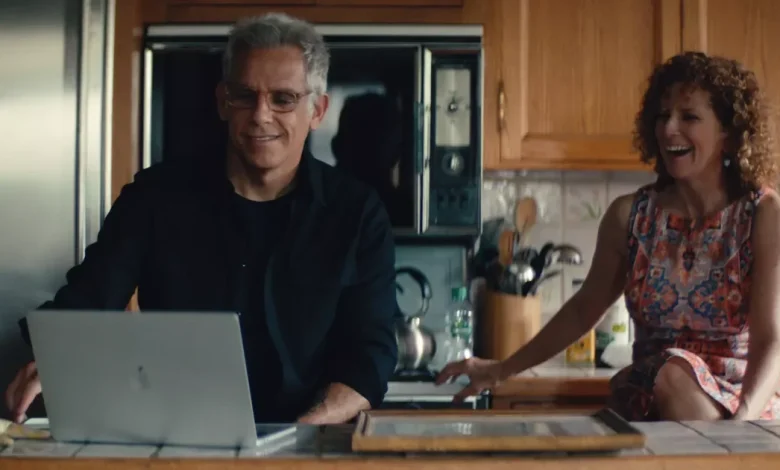Reel Rundown: Ben Stiller explores the lives of his parents in ‘Stiller and Meara’ documentary film

All of us, at one time or another, wonder about our parents. Who are they really? What made them the people that they are?
Some of us go further and obsess about how much their personal foibles – their temperaments, their attitudes – affected our own development. For good and bad.
Few of us, though, have the opportunity, much less the capacity, to pursue answers to our questions the way Ben Stiller has.
As you may know, Stiller is the actor/director/writer/producer and veteran of both movies (“Zoolander,” “Tropic Thunder”) and television series (“The Ben Stiller Show”). And he is now the director of the documentary “Stiller and Meara: Nothing Is Lost,” which is an exploration of the lives of his parents, Jerry Stiller and Anne Meara (and is available on various streaming services).
Two famously mismatched performers – she was tall and of Irish ancestry, he was short and Jewish – Stiller and Meara married in 1954, began performing together in night clubs. And they gained fame when they began appearing regularly on “The Ed Sullivan Show.”
Both ended up having long and successful careers, both as a team and individually. Each not only starred in short-lived network television series but also enjoyed making guest appearances on such shows as “Archie Bunker’s Place” (Meara) and “Seinfeld” (Stiller).
At the same time, they navigated the kind of family life typical of celebrity working couples. Their daughter Amy was born in 1961, and Ben followed in 1965. And while he has fond memories of his childhood – “They were pretty great parents,” Stiller told the New York Times – not everything was, uh, wine and roses.
Well, roses anyway, because for a number of years Meara was a problem drinker. And even though Stiller stresses that his mother “evolved,” lifelong career demands put pressure on both parents – and, by extension, those same obligations had an impact on Stiller and his sister as well.
Stiller makes that clear by revealing his own marital difficulties. Around 2017, he says, he was going through a difficult time and decided to separate from his wife, actress Christine Taylor. But when the pandemic occurred, the two decided to again live together with their children, Quinlin and Ella.
Soon Stiller and Taylor reconciled and reaffirmed their marriage. Following the death of his father in 2020, Stiller and his sister decided to sell his parents’ apartment (Meara had died in 2015).
It was while going through his parents’ possessions that Stiller began to think about making what, over the next five years, would become his documentary. And in doing so, he was forced to realize how he had responded to the same pressures his parents had felt between career and family responsibilities.
One of the most moving parts of “Stiller and Meara: Nothing Is Lost” comes when Stiller’s son talks about his father’s many absences during his childhood. It’s a sentiment that Stiller, hard as it might be for him to accept, doesn’t avoid.
Not that all of his film is a dark psychological study. Stiller uses a lot of archival footage of his parents’ many television appearances, either performing their act, appearing in various series or being interviewed by the likes of Mike Douglas and Merv Griffin. And it’s easy to see why they were so popular.
Still, making the documentary served as a life lesson for Stiller himself. Talking about his renewed connection with his children, he admitted as much to the Times.
“To actually have, now, a real relationship with them, I feel very fortunate,” he said, “because it took me a while to really understand the work that you have to put in, to make that happen.”
If only every parent could come to the same kind of realization.





